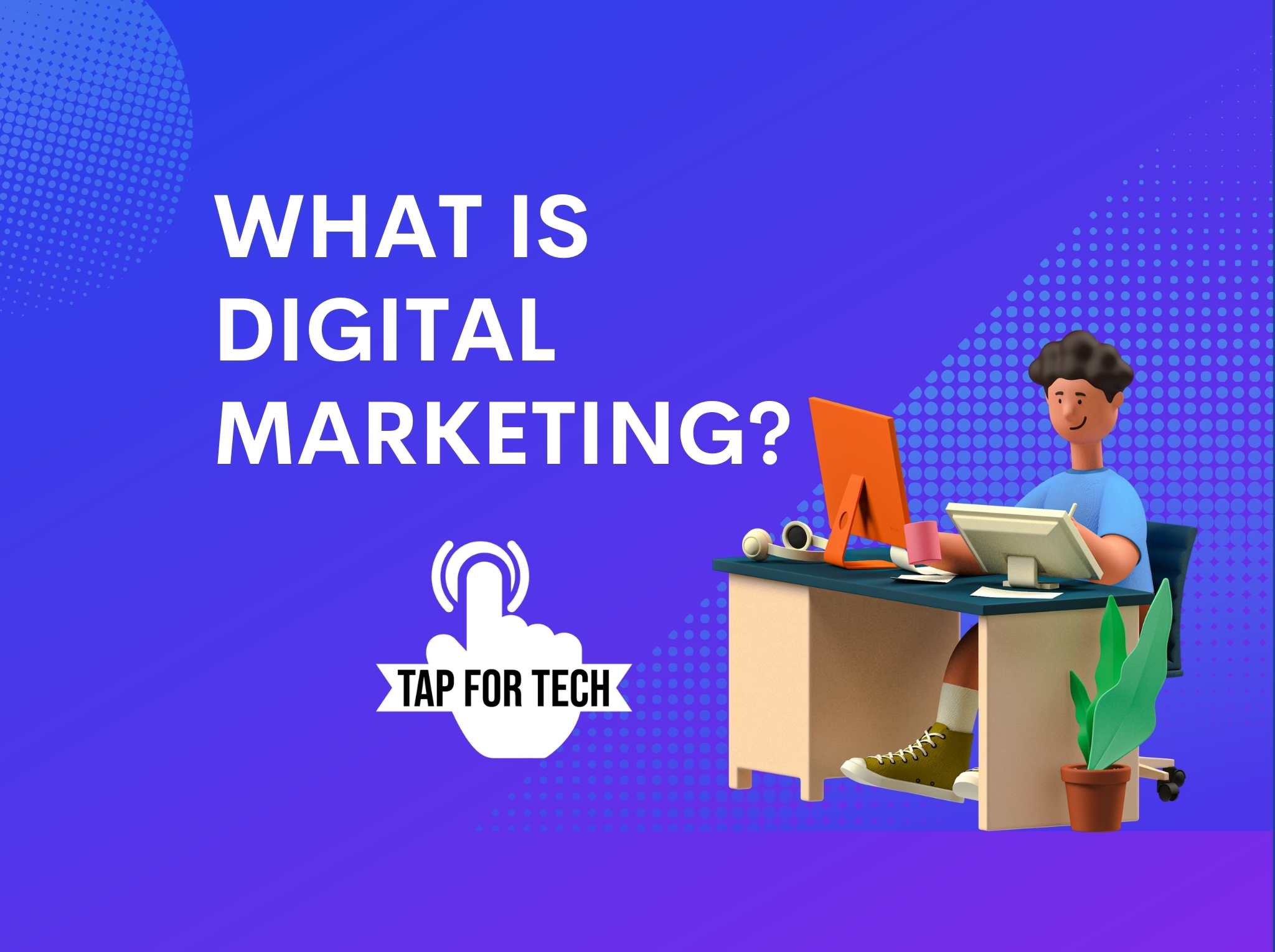Digital Marketing: The Ultimate Guide To Mastering The Digital Landscape
Welcome to the wild world of digital marketing! If you're reading this, chances are you've either heard the buzz about it or you're already knee-deep in the game. Digital marketing is no longer just a buzzword; it's the backbone of modern business strategies. Whether you're an entrepreneur, a marketer, or just someone curious about how brands thrive online, understanding digital marketing is key to unlocking success in today's digital age. So buckle up, because we're diving deep into what makes digital marketing tick!
Let's be honest—digital marketing isn't just about posting random ads on social media or sending out emails. It's a strategic blend of creativity, data analysis, and technology that helps businesses connect with their target audience effectively. From search engines to social platforms, digital marketing has evolved into a dynamic field that keeps marketers on their toes. And guess what? It's here to stay!
Now, before we dive headfirst into the nitty-gritty, let me drop a quick stat that might blow your mind. According to recent studies, global spending on digital marketing is projected to reach over $400 billion by 2025. That's insane, right? But it also highlights the massive potential of digital marketing in shaping how businesses grow and thrive in the digital space. So, are you ready to learn how to harness this power? Let's get started!
- Meet Siom Cowell The Rising Star In The Music Industry
- Trey Gowdy Podcast Your Ultimate Guide To Insightful Conversations
What Exactly Is Digital Marketing?
Digital marketing refers to the practice of promoting products, services, or brands using digital channels. Think of it as the modern version of traditional marketing, but with a digital twist. Unlike billboards or print ads, digital marketing leverages platforms like websites, social media, email, and search engines to reach audiences in a more targeted and measurable way. It's all about creating meaningful connections with customers through content they actually care about.
Here's a quick breakdown of what digital marketing entails:
- Search Engine Optimization (SEO): Helping your website rank higher in search results.
- Pay-Per-Click (PPC) Advertising: Running ads that only charge you when someone clicks.
- Social Media Marketing: Engaging with audiences on platforms like Facebook, Instagram, and LinkedIn.
- Email Marketing: Sending personalized messages directly to your subscribers.
- Content Marketing: Creating valuable content to attract and engage your audience.
And that's just the tip of the iceberg. Digital marketing is constantly evolving, so staying updated with trends and tools is crucial for success.
- Everybody Loves Raymond Cast The Heart And Soul Behind The Laughs
- Did Jep And Jessica Get Divorced The Untold Story Behind Their Relationship
Why Digital Marketing Matters
In today's fast-paced world, consumers are more connected than ever before. Whether they're scrolling through Instagram, searching for products on Google, or watching videos on YouTube, their online behavior leaves a trail of valuable data. Digital marketing allows businesses to tap into this data and deliver personalized experiences that resonate with their audience.
Here are a few reasons why digital marketing is so important:
- Targeted Reach: You can reach specific demographics based on age, location, interests, and more.
- Cost-Effective: Unlike traditional marketing, digital marketing offers scalable solutions for businesses of all sizes.
- Measurable Results: With analytics tools, you can track the performance of your campaigns in real-time.
- Higher ROI: When done right, digital marketing delivers better returns compared to traditional methods.
So, whether you're a small startup or a Fortune 500 company, digital marketing can level the playing field and help you achieve your business goals.
Key Components of Digital Marketing
Now that we know what digital marketing is and why it matters, let's break down its key components. Each component plays a vital role in building a comprehensive digital strategy. Here's a closer look:
1. Search Engine Optimization (SEO)
SEO is the process of optimizing your website to rank higher in search engine results pages (SERPs). It involves both on-page and off-page strategies, such as keyword research, content optimization, and backlink building. The ultimate goal is to increase organic traffic to your site without paying for ads.
2. Pay-Per-Click (PPC) Advertising
PPC is a form of paid advertising where businesses pay each time a user clicks on their ad. Platforms like Google Ads and Facebook Ads offer robust PPC options that allow you to target specific audiences and measure your campaign's performance.
3. Social Media Marketing
Social media platforms have become essential for businesses looking to connect with their audience. From posting engaging content to running targeted ads, social media marketing helps brands build relationships and increase visibility.
4. Email Marketing
Email marketing remains one of the most effective ways to nurture leads and convert them into customers. By sending personalized emails, businesses can stay top-of-mind and drive repeat purchases.
5. Content Marketing
Content is king in the world of digital marketing. Whether it's blog posts, videos, or infographics, creating valuable content helps attract and engage your audience. It's all about providing solutions to their problems and building trust over time.
How to Develop a Digital Marketing Strategy
Creating a successful digital marketing strategy requires careful planning and execution. Here's a step-by-step guide to help you get started:
1. Define Your Goals
Before diving into tactics, it's crucial to define what you want to achieve. Are you looking to increase brand awareness, generate leads, or boost sales? Setting clear goals will guide your strategy and help you measure success.
2. Know Your Audience
Understanding your target audience is key to creating campaigns that resonate. Use tools like Google Analytics and social media insights to gather data on demographics, behaviors, and preferences.
3. Choose the Right Channels
Not all channels are created equal. Depending on your audience and goals, you may focus on SEO, social media, or email marketing. The key is to allocate your resources wisely and prioritize the channels that deliver the best results.
4. Create Compelling Content
Content is the heart of any digital marketing strategy. Whether it's blog posts, videos, or social media updates, make sure your content is engaging, informative, and aligned with your audience's needs.
5. Measure and Optimize
Tracking your campaign's performance is essential for continuous improvement. Use analytics tools to monitor key metrics like traffic, conversion rates, and ROI. Then, adjust your strategy based on what works and what doesn't.
Trends in Digital Marketing
As technology advances, so does the landscape of digital marketing. Here are some of the latest trends shaping the industry:
- Artificial Intelligence (AI): AI-powered tools are revolutionizing how businesses analyze data and personalize experiences.
- Video Content: With platforms like TikTok and YouTube gaining popularity, video marketing is more important than ever.
- Influencer Marketing: Partnering with influencers can help brands reach wider audiences and build credibility.
- Augmented Reality (AR): AR is being used to create immersive experiences that engage consumers in new ways.
Staying ahead of these trends can give your business a competitive edge in the digital space.
Tools Every Digital Marketer Should Know
Having the right tools can make all the difference in your digital marketing efforts. Here are some must-know tools for every marketer:
1. Google Analytics
This free tool provides valuable insights into your website's traffic and user behavior. It's a must-have for tracking the performance of your campaigns.
2. HubSpot
HubSpot offers a suite of tools for marketing, sales, and customer service. Its marketing hub includes features like email marketing, social media management, and lead generation.
3. Canva
Canva is a user-friendly design tool that makes creating visually appealing content a breeze. Whether you're designing social media graphics or presentations, Canva has got you covered.
4. SEMrush
SEMrush is a powerful tool for SEO and competitive analysis. It helps you uncover keyword opportunities, track rankings, and analyze your competitors' strategies.
Challenges in Digital Marketing
While digital marketing offers immense opportunities, it also comes with its fair share of challenges. Here are a few to watch out for:
- Algorithm Changes: Social media and search engine algorithms are constantly changing, which can impact your campaign's performance.
- Ad Fatigue: Overexposure to ads can lead to ad fatigue, where users start ignoring your messages.
- Data Privacy: With increasing concerns about data privacy, marketers must ensure they comply with regulations like GDPR and CCPA.
By staying informed and adapting to these challenges, you can continue to thrive in the digital marketing world.
Case Studies: Success Stories in Digital Marketing
Let's take a look at some real-world examples of brands that have excelled in digital marketing:
1. Nike
Nike's "Just Do It" campaign is a classic example of how storytelling can resonate with audiences. By partnering with athletes and influencers, Nike has built a strong emotional connection with its customers.
2. Airbnb
Airbnb's content marketing strategy focuses on showcasing unique travel experiences. Through its blog and social media channels, Airbnb inspires users to explore the world in new ways.
3. Dollar Shave Club
Dollar Shave Club's viral video campaign revolutionized the razor industry. By using humor and relatable content, the brand quickly gained a massive following and disrupted the market.
Conclusion
And there you have it—a comprehensive guide to digital marketing! From understanding the basics to staying ahead of trends, digital marketing offers endless possibilities for businesses looking to thrive in the digital age. Remember, success in digital marketing requires a mix of creativity, strategy, and data-driven insights.
So, what's next? Take action! Whether it's optimizing your website for SEO, creating engaging social media content, or launching a targeted ad campaign, the key is to start experimenting and learning. And don't forget to share your thoughts in the comments below or explore more articles on our site. Together, let's unlock the full potential of digital marketing!
Table of Contents
- What Exactly Is Digital Marketing?
- Why Digital Marketing Matters
- Key Components of Digital Marketing
- How to Develop a Digital Marketing Strategy
- Trends in Digital Marketing
- Tools Every Digital Marketer Should Know
- Challenges in Digital Marketing
- Case Studies: Success Stories in Digital Marketing
- Conclusion



Detail Author:
- Name : Kristian Stark
- Username : edward.torp
- Email : fhessel@reichel.com
- Birthdate : 1979-11-04
- Address : 647 Monserrate Tunnel Suite 611 Port Ressie, UT 17725
- Phone : +13463633345
- Company : Marquardt-Harber
- Job : Pile-Driver Operator
- Bio : At quis ratione odio maxime sunt odit qui eos. Commodi iure at ex amet nam ea.
Socials
facebook:
- url : https://facebook.com/kelsi6378
- username : kelsi6378
- bio : Est non odit ea. Odit unde tempora quia mollitia.
- followers : 5322
- following : 1144
twitter:
- url : https://twitter.com/kelsi.simonis
- username : kelsi.simonis
- bio : Laboriosam quibusdam nulla inventore dolores. Rerum sunt quae repellendus et esse. Voluptatem aut ad sed modi est reprehenderit facilis.
- followers : 3127
- following : 326